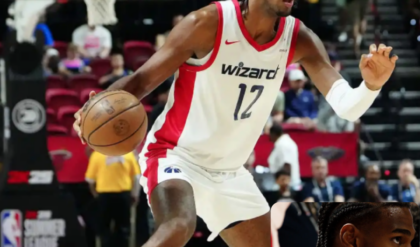Charles’ reign as king is likely to differ from that of his sons, William and Harry, in several significant ways, shaped by generational…

Charles’ reign as king is likely to differ from that of his sons, William and Harry, in several significant ways, shaped by generational, personality, and contextual differences. Here’s a breakdown of how Charles’ approach to monarchy might contrast with what we could expect from William and, to a lesser extent, Harry (who no longer plays a formal royal role):
1. Generational Perspectives on Tradition
Charles: As the eldest son of Queen Elizabeth II, Charles has been deeply rooted in tradition. Having waited over 70 years to become king, his reign is shaped by the long-standing values and practices of the British monarchy. Charles has shown an understanding of the need for reform but has also remained a firm advocate of the monarchy’s traditional role in British society. His approach will likely reflect a balance between modernizing the monarchy and preserving its legacy.
William: William, being a generation younger, may push further toward modernization when his time comes. He is more in touch with current social and cultural issues, engaging with causes like mental health, climate change, and homelessness in ways that reflect the values of younger generations. William might embrace a more streamlined and informal monarchy to keep it relevant.
Harry: Although Harry no longer performs royal duties, his approach to public service has already diverged sharply from Charles and William’s. He and Meghan Markle have embraced a more personal, emotional connection with their causes and audiences, speaking openly about issues like mental health and race. His more open, modern approach contrasts with the reserved, institutional nature of traditional royal roles.
2. Role of Public Engagement
Charles: Charles has long been known for his activism, particularly around environmental issues, architecture, and organic farming, but his public engagement has often focused on long-term institutional change rather than personal connections. As king, he may scale back some of these personal campaigns, but he is expected to maintain a sense of duty and gravitas in his interactions with the public.
William: William is likely to favor a more accessible and personal approach. He and Kate, Princess of Wales, often emphasize their role as modern parents and approachable figures, even while balancing royal formality. William has worked to appear more down-to-earth, which could make his reign feel more inclusive and connected to the everyday lives of British people.
Harry: Harry’s more informal style of public engagement, particularly after stepping back from royal duties, reflects his desire to create a different kind of connection with the public. His and Meghan’s focus on storytelling, emotional honesty, and personal experience speaks to a broader, global audience and represents a departure from the reserved British royal tradition.
3. Global vs. National Focus
Charles: While Charles will represent the UK globally, he will likely focus more on strengthening the monarchy’s role within the Commonwealth and maintaining its traditional influence internationally. His longstanding interest in environmentalism may also drive a global agenda, but his primary duty will be to solidify the monarchy’s role within the UK and its diminishing territories.
William: William will inherit the responsibility of keeping the monarchy relevant on the global stage, but his focus might be more attuned to adapting the royal family’s image in a digital, interconnected world. With a global following, William and Kate have demonstrated an ability to appeal to younger, more diverse audiences, and their work might reflect a broader outreach beyond the Commonwealth.
Harry: Since stepping down from royal duties, Harry’s focus has been more international, especially through his work in the United States with initiatives like the Invictus Games and Archewell. While not part of the monarchy’s future, Harry’s approach could influence how William navigates global and media-savvy audiences.
4. Approach to Modernization
Charles: Charles has spoken about creating a “slimmed-down” monarchy, reflecting changing attitudes toward royal finances and the public’s expectations for the monarchy to justify its existence. His modernization efforts are likely to be cautious, maintaining stability while gradually reducing the size of the working royal family.
William: William will likely continue with, and possibly accelerate, the idea of a more streamlined monarchy. With greater focus on fewer working royals, William could emphasize efficiency and a stronger connection with charitable and social causes, appealing to younger generations who may otherwise question the relevance of the monarchy.
Harry: Though no longer a royal, Harry’s actions, especially his decision to step back from royal duties, have signaled a more radical form of modernization. His outspoken critiques of the royal institution, combined with his new life in the U.S., represent a significant departure from royal tradition and have sparked debates about what the monarchy should look like in the future.
5. Public Image and Media Relations
Charles: Charles has had a complex relationship with the media, particularly during the public scrutiny of his marriage to Princess Diana and later his relationship with Camilla. His reign may see a more formal, measured interaction with the press, as he has shown a desire to maintain a sense of royal distance. He will likely avoid the media battles that characterized earlier years.
William: William has cultivated a much smoother relationship with the press compared to Charles. While he values privacy for his family, he has also adapted to the demands of a 24/7 media landscape, showing greater media savvy. William’s reign might involve more transparency, open communication, and controlled engagement with the press, particularly with social media.
Harry: Harry’s media relations have been the most contentious, particularly since his departure from royal duties. His and Meghan’s high-profile interviews and legal battles with the press have set a different tone from that of Charles and William. Their openness in discussing their struggles with the media contrasts with the more reserved media strategy of the senior royals.
6. Legacy and Longevity
Charles: At 75, Charles’ reign is expected to be shorter, focusing on stewardship rather than radical reform. His legacy might be more about maintaining stability and continuity, particularly as he navigates the transition following Queen Elizabeth II’s historic reign.
William: William’s reign, likely longer and beginning at a younger age, will have more time to evolve. He could focus on significant changes and modernization that would define the monarchy for future generations. His leadership style may reflect a more progressive, hands-on approach to royal duties and societal issues.
Harry: Though no longer a part of the royal institution, Harry’s legacy will be defined by his departure from the monarchy and the conversations he’s sparked about mental health, race, and the role of the royal family in modern times.
In summary, Charles’ reign will likely be marked by a cautious modernization, maintaining tradition while navigating a complex legacy. William’s future reign could take a more progressive, media-savvy, and personal approach to connect with younger generations. Harry, meanwhile, will continue to influence royal discussions from the outside, challenging the status quo and shaping conversations about the monarchy’s future.





